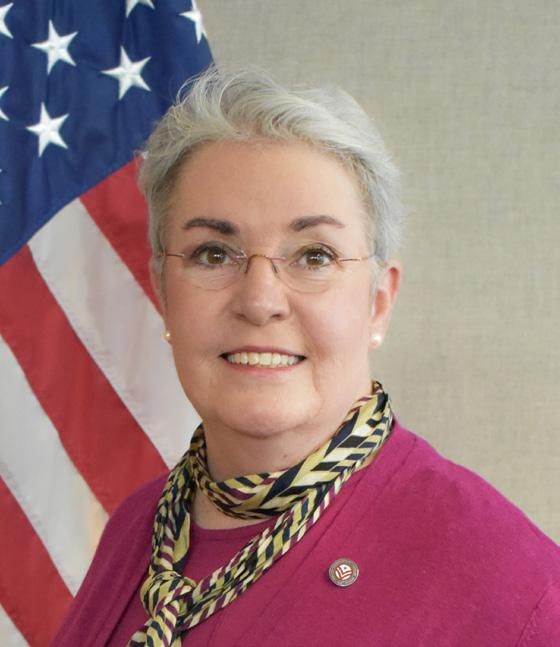
2 minute read
Forging strong partnerships for the mission ahead
A Message from Director Kelly Fitzpatrick

Through the bipartisan leadership of Gov. Kate Brown and the legislature, Oregon has once again approved a significant investment in veteran services to ensure the health, education and economic well-being of our veterans and their families.
There is a particular focus on continuing ODVA’s efforts to mobilize partnerships to better support veterans on campus, ensure all veterans have access to health and behavioral health care resources, and prevent veterans from becoming homeless.
As we continue to build and sustain programs to better serve veterans, we are intensifying the efforts to reach underserved veteran populations. This work would not be possible without the strong support and dedicated efforts of our government, nonprofit and local partners across the state.
In the last year, ODVA has worked closely with Oregon Housing and Community Services as well as Oregon Health Authority to focus services, share our expertise and knowledge, and begin to build our collective intelligence to improve outcomes for those who need assistance. We are forging stronger partnerships for the mission ahead to end veteran homelessness and improve access to behavioral health services.
The results of this work are already impacting key segments of the veteran community in positive ways, and you can read about some of these impacts in this issue of Oregon Veterans News Magazine.
Every veteran experiencing homelessness or behavioral health challenges has a unique story. Some stories are hard to forget, like the one about an Oregon veteran who was living in his car, unable to access his earned federal benefits because, due to a paperwork mix-up, the federal VA thought that he was dead.
Using ODVA’s knowledge and understanding of the VA system and leveraging the skills and experiences of other partners, we were able to help that veteran, and open the door for him to experience a much better life. But it was not a “one-size-fits-all” solution. It never is. When it comes to the problem of veterans experiencing homelessness, there simply isn’t a single, cookiecutter solution.
Some Oregonians experience homelessness because of substance abuse or behavioral health issues. Some experience homelessness because of systemic and societal inequities related to their race, country of origin, language, education, gender identity, sexual orientation or other aspect of their background. Some experience homelessness because of a lack of access to resources in their rural communities.
It’s a complicated problem. That’s why we must continue to work together. We must pool our resources, our knowledge, our skills and our expertise.
With those shared resources — that shared intelligence — with our common goals, and with many dedicated partners pulling in the same direction, we can make good on the promise to end veteran homelessness in our state. And we will.










